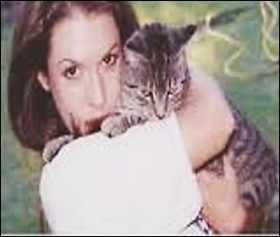What is the Deal with Exotic Animal Ownership?
When it comes to exotic animals, wildlife, and agricultural departments, federal and state level agencies are interfering with business contracts and there is no one there to stop them. According to the law, an animal is considered property, which means people are constitutionally guaranteed the right to be free from unfounded seizures of privately-owned animals. However, this obvious right seems to be overshadowed by the government’s schemes to wrongfully take privately-owned animals.
One exotic animal owner, Carrie Leo, has had her valuable exotic animals kept from her since she boarded them at a zoo in Oklahoma in June 2018. Her pending litigation has still not been resolved. The project, “New York State for Exotic Animal Ownership,” formally began after the USDA wrongly seized her animals in secret from where they were being boarded. The Animal Care Unit, contributing to the USDA’s Animal and Plant Health Inspection Services, is to blame. Yet, according to The Animal Welfare Act, she is permitted to keep them as a private collection. Federally funded ‘sanctuaries’ monopolize wild and exotic animals to put animal-related facilities out of business and are becoming secret money-making machines.
Leo v Thomas and Leo v Lowe were cases filed in New York and Oklahoma, respectively, and expose the USDA’s interference with fair play both in pending litigation as well as outside of the courtroom. Leo uncovered the theft of exotic animals and violations of numerous laws, rules and regulations. Leo’s case in Garvin County District Court became stalemated after the judge changed her treatment of Leo after receiving unsupported accusations. To date, the judge has yet to disclose the communication, which prompted her to block Leo’s efforts to regain possession of her animals. Leo not only acquired an order from the Oklahoma court prior to the interference of outsiders; but also, from the New York State Supreme Court granting her right to repossession of her animals.
Upon closer examination, Leo uncovered schemes in which the authorities, consisting of federal and state wildlife and agricultural administrative agencies, sometimes SPCA groups and animal rights groups, such as PETA, ALDF, etc., sell unlawfully seized animals and/or transfer them to their own sanctuaries camouflaged as members of the Global Federation of Animal Sanctuaries. Once the animals are in the possession of these sanctuaries, the USDA provides monetary compensation for the facilities for the care of the animals for the rest of their lives. Since these sanctuaries tout an animal rights agenda, the exotic animal industry often associates the USDA and state agencies, such as New York's Department of Environmental Conservation, with catering to the special interests of animal rights groups.
Leo is now on a quest to help the public, especially wild and exotic animal owners, caregivers, and wildlife rehabilitators to become aware of the actions used by the New York State Department of Environmental Conservation (NYSDEC) as well as other state and federal agencies. As part of her advocacy, Leo has developed www.nysexotics.com, where she offers a mix of animal ownership-related commentary as well as court records of relevant cases and anecdotal evidence from others who have experienced hardships with the legal system, especially where animal-related licensing systems and regulatory practices have been called into question.
For the longer, more-detailed 6+ page article from which the foregoing article is based, please visit http://www.nysexotics.com/articles/USDA-Scheme-Illegally-Seizes-Private-Property or contact Carrie Leo at nysexotics@gmail.com.
Carrie M. Leo has a background in caring for domestic pets, certain types of livestock and exotic animals of a variety of species. She is also active on Facebook: https://www.facebook.com/ExAnimalOwn, Instagram: http://www.instagram.com/nysexotics and Twitter: http://www.twitter.com/nysexotics
Carrie Leo is a resident of the Finger Lakes area of New York State and has been involved with exotic animals since 2011 when she became a wildlife rehabilitator. Since then, she has gained experience in a variety of indigenous species from field mice to coyotes.
Raised in the countryside of New York State, she developed an interest in wild and domestic animals early in her life which not only stayed with her but grew exponentially into her adulthood.
In 2012, sheI organized a small effort in the rehabilitation and keeping of wild animals. The following year, she started keeping and working with exotic animals - which are much different than the state's indigenous wildlife. The working project was incorporated into a charitable business and offered educational opportunities for the surrounding community. - working with college students, exotic animal veterinarians, and other facilities renown for keeping exotic and wild animals.
She's passionate about working with animals about which few people know. She is also passionate about defending her liberty to do so.








